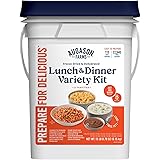Local Community Organizations
Understanding Community Resource Centers
Let’s kick things off by talking about community resource centers. These places are often hubs of support during disasters. They usually have folks who know their stuff when it comes to what to do before, during, and after a disaster. I’ve visited a few in my area, and they always seem welcoming, offering a variety of resources like information pamphlets, emergency plans, and even personal advice from volunteers. They’re really the first place to check out!
Often, they hold classes on disaster preparedness, teaching everything from assembling a survival kit to understanding the local risks in your area. It’s a hands-on way to get informed! Plus, being part of a community event can help you connect with your neighbors, who might become your lifeline during a serious situation.
Don’t forget to check if they have a website or social media pages. Many organizations keep their online presence updated with upcoming events, workshops, and more ways to get involved. It helps to stay in the loop so you don’t miss out on essential info!
Nonprofit Organizations Focused on Disaster Relief
Nonprofits play a huge role in disaster preparedness. Organizations like the Red Cross or local food banks often provide training and resources for community members. I’ve personally learned a lot from workshops offered by these groups. They teach you how to create emergency plans and what’s needed in your supply kit – really practical stuff that you can apply immediately!
Many of these organizations also mobilize volunteers during disasters. Getting involved not only helps you learn but also connects you with people who are all about community resilience. It’s amazing how much we can learn from each other, right?
Make sure to explore what’s available in your area. Many nonprofits have their fingers on the pulse of local needs and can be great allies in helping you and your family prepare for any emergency down the road.
Churches and Faith-Based Groups
Often overlooked but incredibly supportive are local churches and faith-based organizations. They have a unique community support network, often rallying to help each other during tough times. Many churches regularly organize disaster preparedness events that are open to the public. That was my experience when I attended a preparedness seminar at my local church — the spirit of cooperation was palpable!
These groups frequently offer resources like food packs, emotional support, and sometimes even financial assistance for those affected by disasters. Plus, they tend to have a strong emphasis on fostering connections among community members, which can ultimately help us all during a crisis.
== > What if ... Get a FREE Subscription to PREPARE
If you have a place of worship you attend, don’t hesitate to ask about their disaster preparedness programs. If they don’t have one yet, maybe you could help start one! Honestly, sometimes just starting the conversation can lead to amazing results.
Community Emergency Response Teams (CERT)
What Are CERTs?
So, have you ever heard of Community Emergency Response Teams? These are amazing groups of trained volunteers who are there to assist in disasters. I took their training course, and it was eye-opening. We learned about disaster response, basic first aid, and how to support our community effectively during emergencies – a real confidence booster!
Joining a CERT program can be a gamechanger. You get to meet like-minded individuals who care about your community. Plus, you’ll find that hands-on training can make all the difference if the chips are down. I’ve made great friends through my involvement, and it’s nice to feel like part of a support network.
To find a CERT near you, a quick search online or a chat with your local emergency management office will usually do the trick. Getting involved could really empower you and your community, making us all a bit safer.
Benefits of CERT Training
The benefits of CERT training go beyond the knowledge itself — it’s about building a resilient community. When you’re trained, you can step in when help is needed most. I’ve seen how that training can lead to rescuing someone who’s trapped or providing immediate medical care when professional responders are busy elsewhere. It’s super fulfilling!
Additionally, being part of CERT means you’re often invited to community meetings and events. You get the scoop on what’s happening in emergency management in your area and have a voice in planning efforts. It’s empowering to know that your input can help shape how your community handles emergencies.
Lastly, CERT creates a sense of solidarity among those involved. Knowing there are others who share the same goal of preparedness and resilience can be incredibly comforting. Together, we can tackle challenges head-on!
Volunteer Opportunities
One of the best ways to engage with your local CERT is through volunteering. It’s a chance not just to contribute but also learn a ton. I started volunteering, and it brought me face-to-face with local emergency services, community leader meetings, and events where we could really make an impact.
Volunteering also connects you with valuable resources. You’d be surprised by what you learn by simply being present! Whether you’re helping organize supplies or supporting drills, every little bit counts, and it builds up your skills in a meaningful way.
Additionally, it’s an awesome way to boost your resume if you’re looking into emergency management as a career, too! You gain experience, connections, and the satisfaction of knowing you’re contributing to a safer community.
Online Resources and Social Media Groups
Utilizing Online Platforms
Alright, let’s dive into the digital age! Online platforms are incredible resources for disaster preparedness. I can’t tell you how many times I’ve turned to forums or websites focused on emergency management for guidance. They often have sections dedicated to community preparedness tips, downloadable guides, and even checklists.
Don’t forget about webinars and online workshops. I’ve participated in several free online sessions that taught everything from emergency kit creation to risk assessment for natural disasters. These platforms are super accessible and can be especially handy if you’re juggling a busy schedule.
Staying informed through credible sites can also help you keep up with local alerts and tips from professionals in the field. It’s like having a mini Disaster Preparedness Academy right at your fingertips!
Get Preparedness and Self-Reliance Tips. Subscribe!
Social Media Groups for Local Engagement
Social media is another excellent tool! I’ve joined local groups on platforms like Facebook, where community members share tips, experiences, and resources. These connections often lead to real-life events where we can network and learn even more.
Plus, if something happens – whether it’s a minor emergency or a larger one – it’s easier to get real-time updates and advice from your neighbors. Social media can be a lifeline to the community during emergencies, keeping everyone on the same page!
Make sure you follow local emergency management agencies, too. They often have the freshest updates on what’s going on in your neighborhood regarding preparedness efforts, road closures, and even resources for evacuation if needed.
Creating Your Own Online Support Network
If you find that your community isn’t quite as active online, why not take the initiative? I started a small group in my neighborhood focused on disaster readiness where we share ideas and plan community drills. It’s really amazing how a few interested individuals can inspire a whole group!
You could use tools like Zoom for meetings or set up a dedicated site for sharing resources. Everyone can contribute, whether they’re sharing a found article or asking questions – it creates a vibrant, supportive environment.
Empowering your circle of friends and neighbors by creating your group can lead to more organized, community-wide preparedness efforts. Together we can create change and make sure everyone knows how to handle emergencies, no matter what!
Government Programs and Resources
Local Emergency Management Offices
You’d be amazed at what local government offices can offer. They usually have dedicated teams focused on disaster preparedness, planning, and response. When I visited my local emergency management office, I discovered a treasure trove of brochures, training schedules, and resources I didn’t even know existed!
Most importantly, these offices coordinate community preparedness events and training sessions. Getting involved means you can stay updated on local risks and plans. Plus, speaking with knowledgeable staff can clear up any questions you have about preparing for specific emergencies.
Don’t hesitate to reach out for guidance! They’re there to help, and forming a relationship with emergency management personnel could be very beneficial for you during a disaster.
Preparedness Grant Programs
The government often provides grants aimed at enhancing community resilience and disaster preparedness initiatives. I keep an eye on announcements out of my local government and even state-level agencies for opportunities to participate in funded preparedness projects.
If your community is hosting a preparedness project funded by such grants, it could be a fantastic way to get involved while ensuring you’re learning from and working alongside professionals in emergency management.
Some of these projects even look for volunteers or participants to help run training exercises. Getting involved from the ground up means you’ll be well-informed about procedures and precautions, plus you contribute to community strengthening.
Participating in Local Emergency Drills
One of the best ways to experience preparation firsthand is to participate in local emergency drills organized by government entities. I remember being part of a large-scale drill that simulated an earthquake response. It was not only educational but also super fun, and it helped me meet new people!
During these drills, participants can apply what they’ve learned in real-life scenarios, enhancing both individual skills and community cooperation. It’s honestly a thrill to see everyone work together toward a common goal, fostering a sense of unity.
If you haven’t yet taken part in one, mark your calendar for the next drill. You’ll gain insight into the local response efforts, know what to expect in a real emergency, and perhaps learn life-saving techniques along the way.
FAQs
1. What types of community organizations can I seek for disaster preparedness?
You can turn to local community organizations, nonprofits like the Red Cross, churches, and CERT. These groups provide resources, training, and community building.
2. How can I get involved with CERT?
Start by visiting your local emergency management office or searching online for a CERT program near you. They often have classes and volunteer opportunities to join!
3. Are there online resources for disaster preparedness?
Absolutely! There are many online platforms and social media groups where you can find resources, tips, and the latest announcements regarding preparedness efforts. Joining these communities can greatly enhance your knowledge.
4. What role does local government play in disaster preparedness?
Local governments often provide resources, training, and coordination for community preparedness events. They are also key in providing information regarding grants and emergency drills.
5. How can I create a support network for disaster preparedness?
Start by reaching out to neighbors and friends to form a group focused on disaster readiness. Organize meetings, share resources, and stay connected to strengthen your community resilience.






